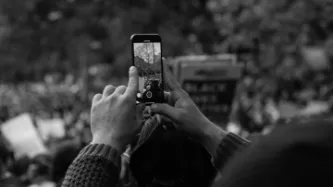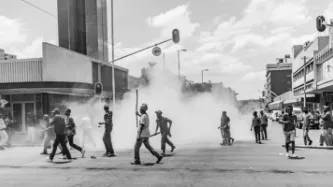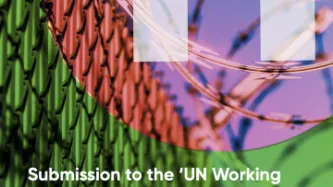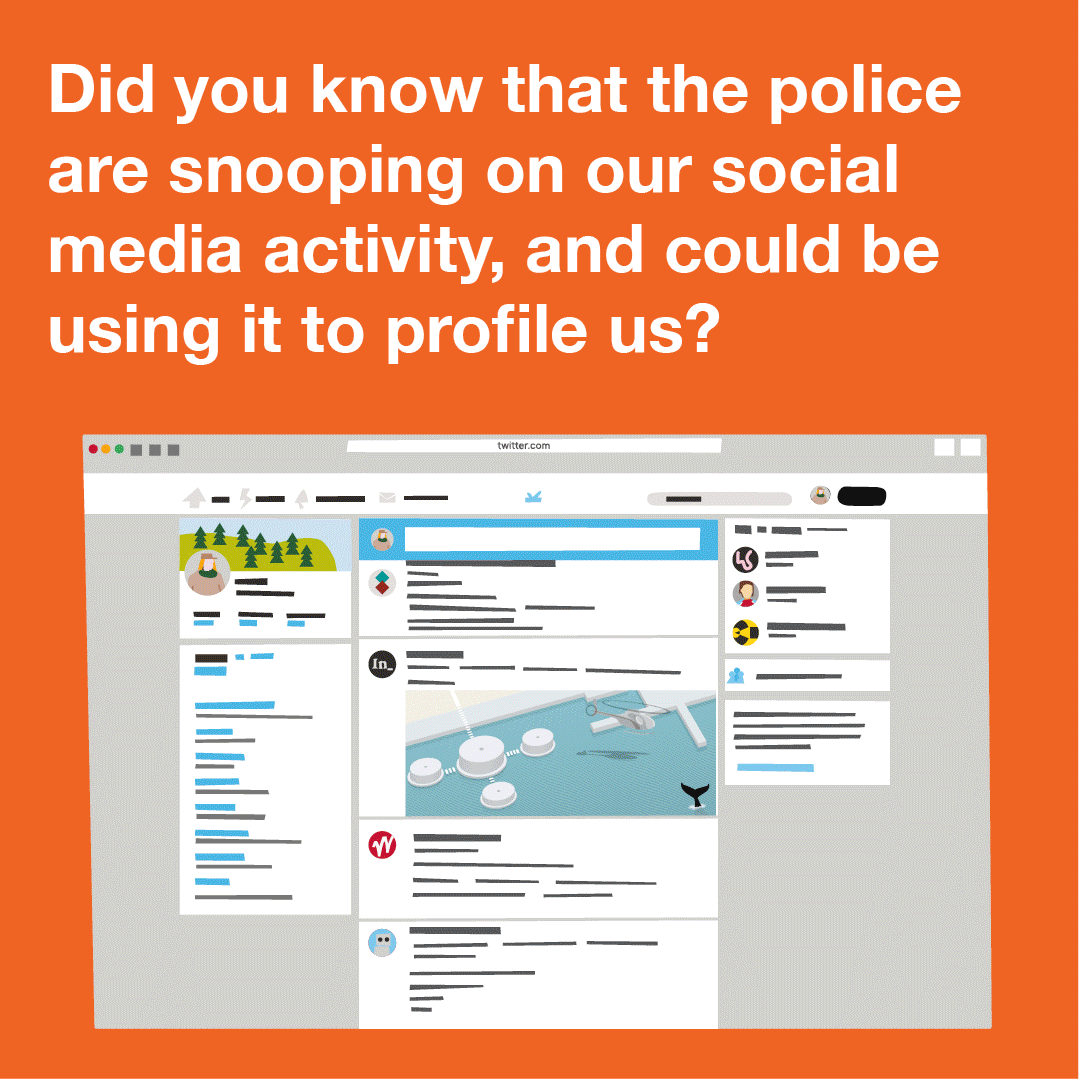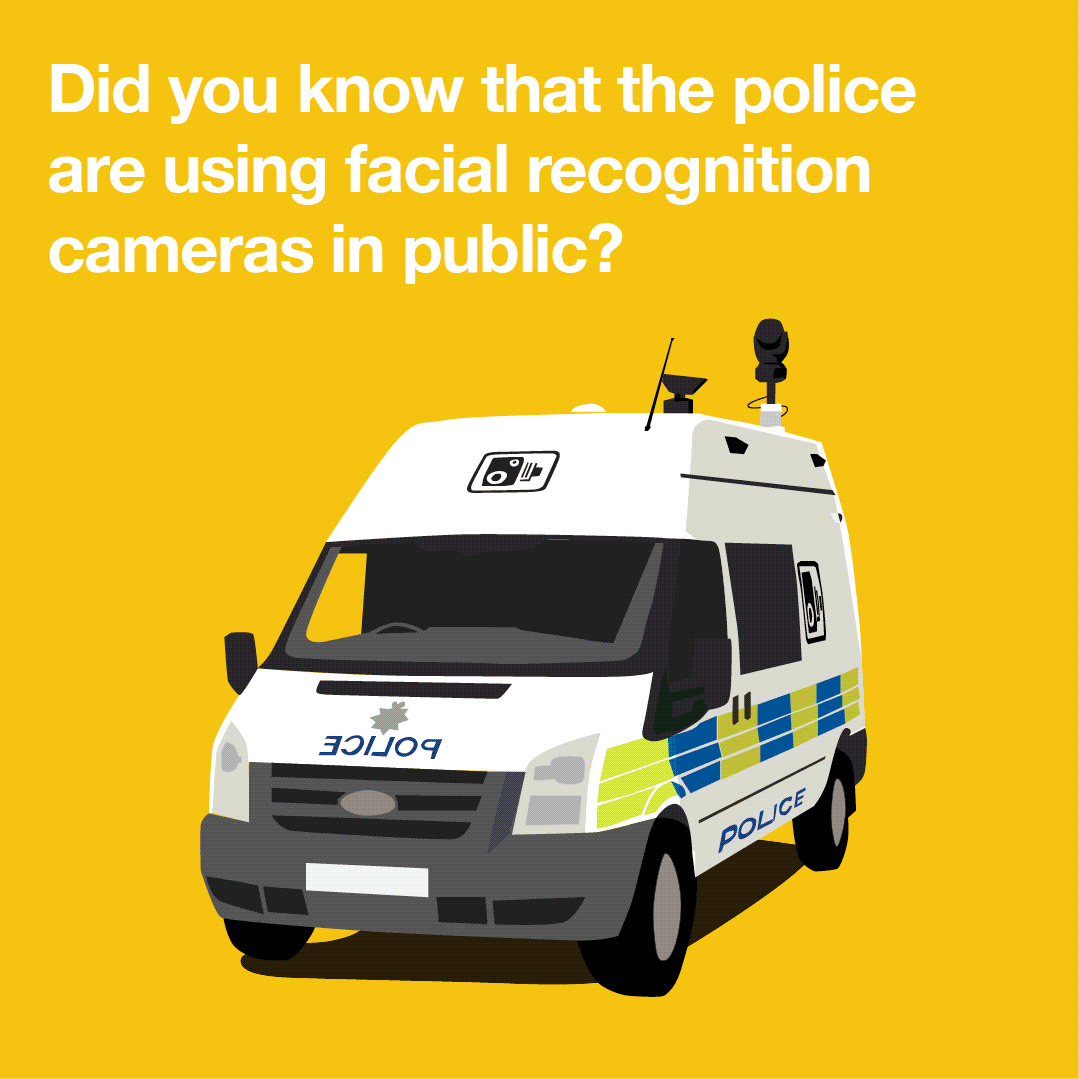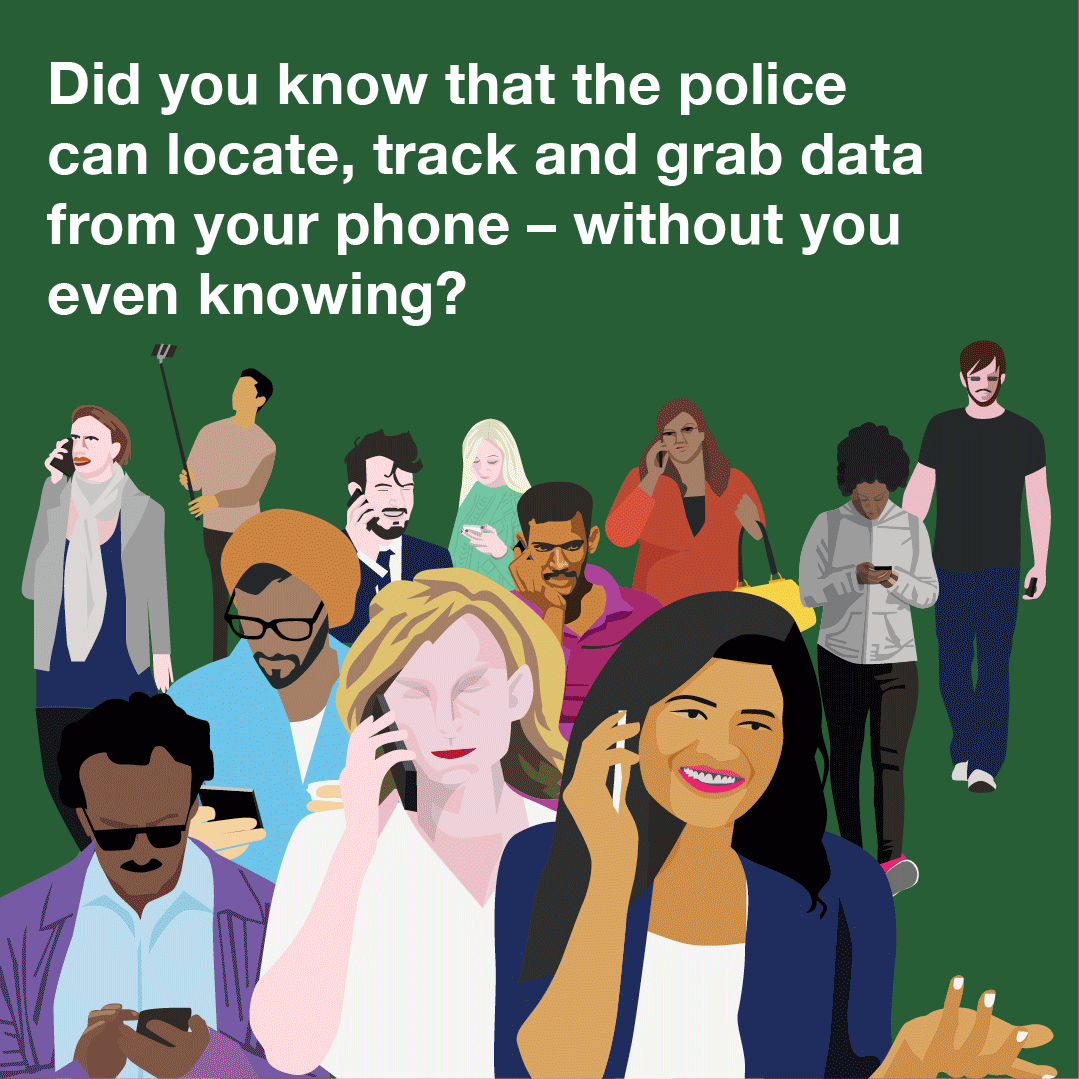Search
Content type: Case Study
Por favor describe brevemente tu trabajo y/o activismo y las temáticas y cuestiones que ahí abordas.
Yo soy investigador en una organización dedicada a temas relacionados con la defensa del territorio y protección ambiental. Operamos en diferentes regiones, incluyendo regiones que han sido históricamente violentadas por temas del conflicto armado y que recientemente experimentan un pico en diferentes tipos conflictos ambientales. Nuestro trabajo consiste en…
Content type: Case Study
Centro Prodh es una asociación sin fines de lucro que promueve los derechos humanos, y que ha acompañado algunos de los casos más emblemáticos en México. Quizá a raíz del impacto positivo de su trabajo, el centro se ha visto enfrentado a riesgos serios de vigilancia. En su declaración de fin de misión después de una visita a México, el anterior relator especial de la ONU sobre la situación de los defensores de derechos humanos, expresó preocupación en relación al Centro…
Content type: Case Study
Sebastián Gómez is a land rights defender. He is based in Colombia.
Qn: Please briefly describe your work and the issues/topics you work on.
I am researcher for an organisation working on topics related to the defense of the territory and environmental protection. We operate in different regions, including those which have been historically subjected to violence due to the armed conflict and which are now experiencing a spike in a range of environmental conflicts. Our work consists of…
Content type: Case Study
Ananda Badudu is an activist, musician and former journalist. In September 2019, he started a crowdfunding campaign page to support student protesters taking part in demonstrations against the Indonesian House of Representatives.
Qn: Please briefly describe your work and the issues/topics you work on.
I’ve been full-time musician for 2 years. Before that I was a journalist from 2010 to 2016, first at Tempo, then at Vice. In late September 2019, I took part in a crowd-funding campaign…
Content type: Long Read
What Do We Know?
Palantir & the NHS
What You Don’t Know About Palantir in the UK
Steps We’re Taking
The Way Forward
This article was written by No Tech For Tyrants - an organisation that works on severing links between higher education, violent tech & hostile immigration environments.
Content type: News & Analysis
IMSI catchers (or stingrays as they are known in the US) are one of the surveillance technologies that has come to the forefront again in the protests against police brutality and systemic racism that have been sparked by the murder of George Floyd on 25 May 2020.
An International Mobile Subscriber Identity catcher – in short an “IMSI catcher” – is an intrusive piece of technology that can be used to locate and track all mobile phones that are switched on in a certain area. It does so by…
Content type: News & Analysis
Traduction réalisée par Nadine Blum.
Le 29 mai, le Congrès nigérien a voté une loi permettant au gouvernement d’intercepter largement certaines communications électroniques. La loi rend légale l’interception de communications, autorisée par le gouvernement, sans protections appropriées ni mécanismes de contrôle.
La loi a été adoptée avec 104 votes pour – le Parlement nigérien compte 171 membres – et sans la participation de l’opposition qui a boycotté la loi. L’opposition a affirmé…
Content type: News & Analysis
On 29 May, Niger’s Congress voted on a law allowing for broad interception powers of certain electronic communications by the government. The bill makes it lawful for the government to approve the interception of communications without appropriate safeguards or oversight mechanisms.
The law passed with 104 votes – the Nigerien parliament has 171 members – without the participation of the opposition that boycotted the law. The opposition claimed that
the law will allow those, for…
Content type: Examples
The Australian journalist Chris Buckley, who reports for the New York Times, was forced to leave China on April 10 after 24 years of reporting on the country, bringing the number of journalists forced out of the country in the last year to 19.
After travelling to Wuhan to report on the unfolding outbreak on the day the city was locked down in January, he was told to stop when his press card expired in February. The division of the Foreign Ministry responsible for international media…
Content type: Examples
The International Press Institute has found that in both democratic and autocratic states the public health crisis has given governments the excuse of preventing the spread of disinformation to exercise control over the media, whether by criminalising journalism or controlling the public narrative and restricting access to information about the pandemic. The International Federal of Journalists has also found that three-quarters of journalists report that working conditions have deteriorated…
Content type: Advocacy
Privacy International responded to the call for submissions of the Working Group on the use of mercenaries as a means of violating human rights and impeding the exercise of the rights of peoples to self-determination on role of private military and security companies in immigration and border management and the impact on the protection of the rights of all migrants.
This submission builds on PI’s research and reporting highlighting examples of the involvement of private companies in…
Content type: Examples
On April 20 Hong Kong authorities arrested some of the most prominent anti-China activists. The need to clear the streets to protect public health during the COVID-19 outbreak provided the authorities an opportunity to cripple the protest movement that had spread across the country beginning in mid-2019. Chinese officials in Hong Kong have also called for improved national security education in the city and for the passage of a national security law giving law enforcement and prosecutors…
Content type: Examples
Tanzania's Communication Regulatory Authority punished three TV stations for airing content that was "misleading and untrue" about the government's strategy on fighting coronavirus. Critics believe that TCRA objected to a report that criticised President John Magufuli for saying that churches should remain open on the basis that "coronavirus cannot survive in a church".
Source: https://www.bbc.co.uk/news/world-africa-52214740
Writer: Dickens Olewe
Publication: BBC
Content type: News & Analysis
In mid-2019, MI5 admitted, during a case brought by Liberty, that personal data was being held in “ungoverned spaces”. Much about these ‘ungoverned spaces’, and how they would effectively be “governed” in the future, remained unclear. At the moment, they are understood to be a ‘technical environment’ where personal data of unknown numbers of individuals was being ‘handled’. The use of ‘technical environment’ suggests something more than simply a compilation of a few datasets or databases.
The…
Content type: News & Analysis
Today Advocate General (AG) Campos Sánchez-Bordona of the Court of Justice of the European Union (CJEU), issued his opinions (C-623/17, C-511/18 and C-512/18 and C-520/18) on how he believes the Court should rule on vital questions relating to the conditions under which security and intelligence agencies in the UK, France and Belgium could have access to communications data retained by telecommunications providers.
The AG addressed two major questions:
(1) When states seek to impose…
Content type: Report
Like many others, PI were alarmed at recent reports that Facebook have been making mobile phone numbers (which users believed to be) provided for the express purpose of "two-factor authentication" (2FA) both searchable, and a target for advertising by default.
One of the myriad ways Facebook displays targeted adverts to users is through so-called "Custom Audiences". These "custom audiences" are lists of contact details, including phone numbers and email addresses, uploaded by advertisers.…
Content type: Explainer
Could an app you have never even heard of put you at risk? This is what happened to Chloe (real name has been changed), an investigative journalist exposed by an app that her source was using.
Her source was using TrueCaller, an app that aims to identify phone numbers so users can filter out calls, even if it is from a number they have never encountered before. TrueCaller relies on users tagging numbers who are calling them. And when your number is tagged there is no way for you to know that…
Content type: Case Study
Photo by Roger H. Goun
Chloe is an investigative journalist working for an international broadcast service; we will call the TV show she works for The Inquirer. She travels around the world to work with local journalists on uncovering stories that make the headlines: from human trafficking to drug cartels and government corruption. While her documentaries are watched by many and inspire change in the countries she works in, you would not know who Chloe is if we were to tell you her real name.…
Content type: Long Read
(In order to click the hyperlinks in the explainer below, please download the pdf version at the bottom of the page).
Content type: Explainer graphic
You can also read a more detailed explainer about social media intelligence (SOCMINT) here.
Content type: Report
6 March 2019
Privacy International (PI) has written Facebook to express our concern and request urgent answers regarding its policy on the sharing of mobile phone numbers of its users.
Alarmingly, recent reports say that some of the phone numbers provided by users for the express purpose of two-factor authentication (2FA) as a way of securing their accounts are now made searchable across the platform by default.
PI is concerned that allowing such numbers to be searchable…
Content type: Explainer graphic
You can also read a more detailed explainer about facial recognition cameras here.
Content type: Explainer graphic
You can also read a more detailed explainer about IMSI catchers here.
Content type: Examples
In July 2018, Facebook announced it was investigating whether the Boston-based company Crimson Hexagon had violated the company's policies on surveillance. Crimson Hexagon markets itself as offering "consumer insights". Its customers include a Russian non-profit with ties to the Kremlin, and multiple US government agencies. After pressure from civil liberties groups, Facebook put a policy in place in March 2017 barring the use of members' data for the purposes of government surveillance.…





